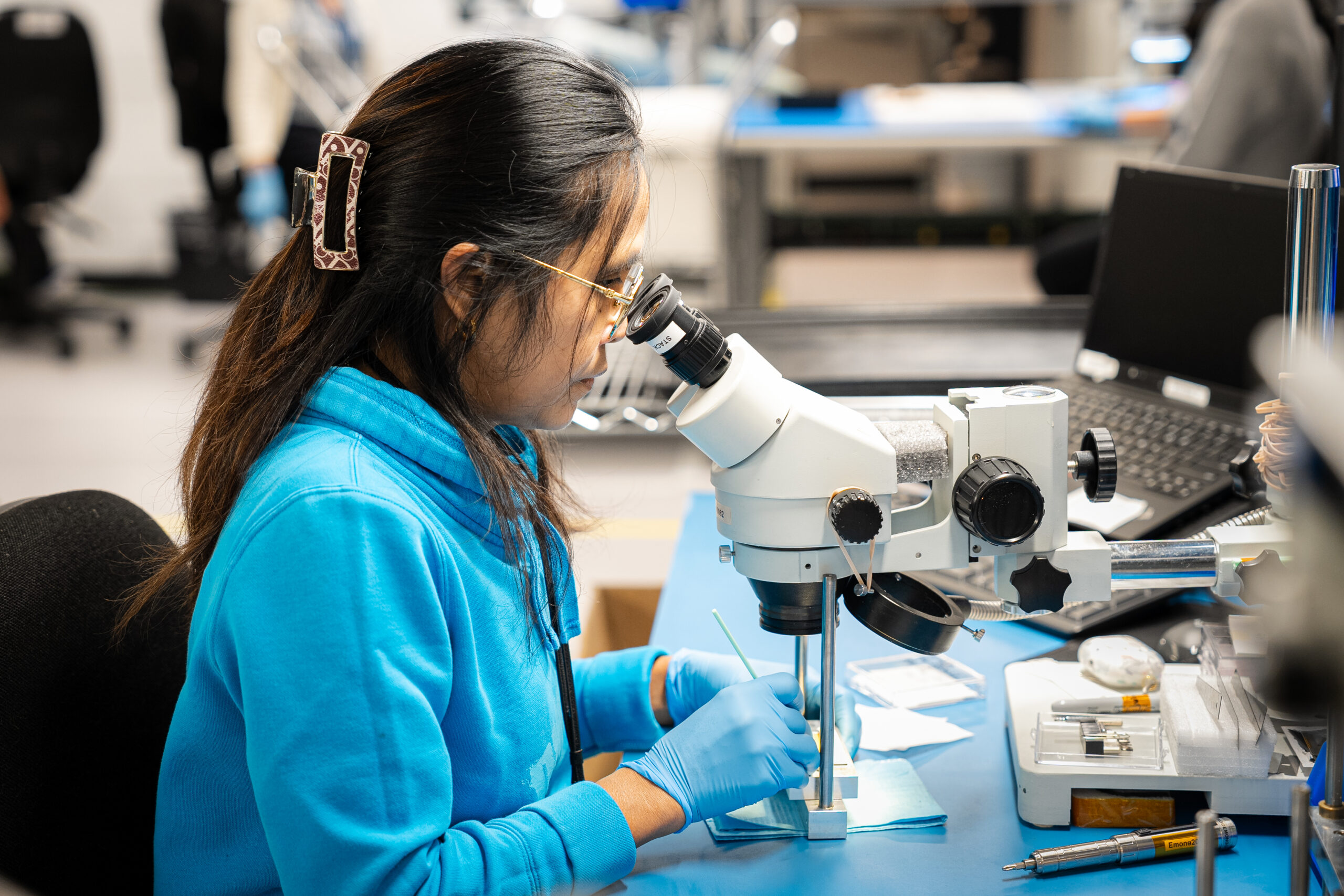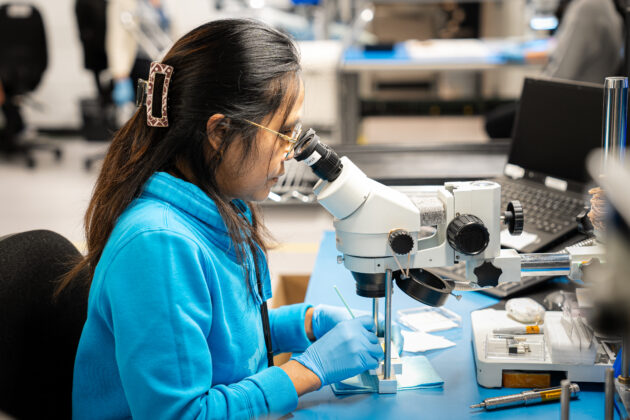
Clarius Mobile’s grand plans
April 9, 2024
By
Canadian Manufacturing


(Credit: Clarius Mobile Health)
On Mar. 14, Clarius Mobile Health announced that it had received $3.4M from the federal government’s PacifiCan program, to help with its plans of global expansion and targeting Southeast Asia for its proprietary medical device.
Currently, the company says that approximately half of its revenue comes from North America, Europe and Australia, and they’re eager to expand into the IndoPacific region.
CEO Ohad Arazi, was in full marketing-mode, when he sat down with Canadian Manufacturing to talk about the company’s plans.
“We’re now on the third generation of the medical device. The device is submergible, and it can be bagged, disinfected, and is perfect for a sterile environment. We’re using AI to optimize the imagery, interpret what you’re looking at, and simplify ultrasound usage for practitioners.”
When asked about how the funding is meant to help Clarius and how they intend to use it, Arazi was clear.
“The IndoPacific region is attractive to us, not only is it part of our federal government’s global strategy, but there’s also a huge population there with progressive healthcare systems. They have an appetite for innovation that we can capitalize on,” he says.
Part of this expansion means the company is currently undergoing regulatory clearances in the region for its devices, and trying to increase its distribution footprint there.
Their wireless ultrasound solution is manufactured in Canada from parts around the world, and Ohad Arazi, CEO of Clarius Mobile, broke down the company’s supply chain.
“We hand manufacture our devices in-house, our return rate is less than 0.2%, so we’re proud of the job we’re doing. We procure parts from all over the world, including China. The lithium-ion batteries are a critical component, along with some other parts that we source from all over.”
Currently, the market is saturated with imaging medical devices being manufactured by only the bigger players for the most part. GE, Philips, Butterfly, and now Clarius, hold most of the handheld ultrasound market.
One of the key hurdles, Arazi says, is practitioners learning how to use the devices.
“There are approximately 100,000 sold to date, and ease of use is a huge part of that. There’s exciting room right now for physical therapy, and through our devices, even novice users can bring it into practice regularly.”
Currently, the company isn’t training practitioners through dedicated on-site personnel, but rather, a series of YouTube videos to help people learn.
Ohad Arazi says that while the devices may replace an ultrasound machine, and may also lessen the need for a sonographer, the benefits are difficult to ignore.
“It’s point-of-care ultrasound, battery-powered, and changes the game to allow for remote care, and a much lighter space requirement and investment in traditional ultrasound support.”
The devices are sold as a combination of hardware and a subscription to the company’s software, and the company is currently engaged with U.S. hospitals through the government’s procurement strategy to enable further access into the region.
The company says they are trying to get into group purchasing contracts with U.S. hospitals to solidify its growth.
When asked about how their relationship with the Cdn. government may help Clarius beyond the PacifiCan funding, Arazi was forthcoming.
“We’re going on a number of trade missions with the government which we find are helpful because we don’t always have an established market presence in some regions. Going with the federal government sort of gets us in the door, gives us a seal of approval for those other governments, and helps us get the meetings that we need.”
When speaking about their talent retention strategy, the Clarius leader says that they’ve been lucky, but also that operating out of Vancouver, B.C. has been a boon, with access to the top-end talent they need in order to be successful.
“On the manufacturing side, we’ve been successful in hiring talent from East Asia. Our employees skew older, and are people who have worked in electronics in China or the Philippines. We have very good retention and most of our employees have been with the company for 8 plus years now.”
He added, saying: “Being a value-driven business helps, and being connected to your team helps. We haven’t really lost talent to Silicon Valley, or Toronto to my knowledge. We have the talent here, and our team believes in the mission.”
Clarius’ journey in the medical technology space continues, and how the Cdn. manufacturer grows from here will be an interesting case study to follow.


